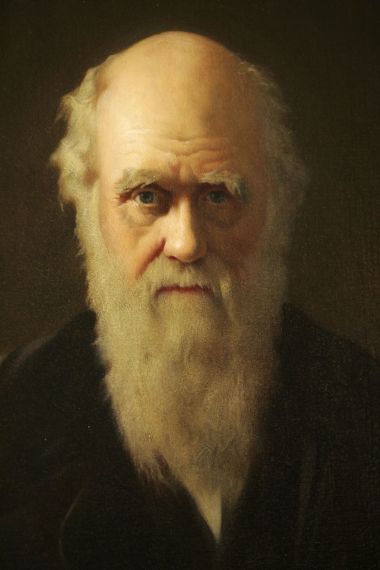Charles Darwin: Atheist? Christian? Agnostic?

Charles Darwin was born 217 years ago today and debates surrounding creationism, evolution and intelligent design still rage on.
However Darwin himself, unlike the modern-day pit-bull Richard Dawkins, was certainly not an avowed atheist. In fact he disliked religious controversy and was remarkably reluctant to express a religious view, telling one correspondent "my opinion is not worth more than that of any man who has thought on such subjects and it would be folly in me to give it".
So what did the great founder of the theory of evolution believe? Did he die convinced the theory of evolution disproved the need for God's existence? Certainly not.
It is true he struggled to believe in a good and loving God. But that was not because of his theory of evolution. The doubts he had revolved around the timeless problem of pain and suffering.
"There seems to be too much misery in the world," he wrote in a letter to an American Christian evolutionist Asa Gray, a friend and regular correspondent of Darwin, who became known for arguing that Darwinism and Christianity were perfectly compatible.
"I cannot persuade myself that a beneficent and omnipotent God would have designedly created the Ichneumonidæ [a parasite who eats its host alive from the inside] with the express intention of their feeding within the living bodies of caterpillars, or that a cat should play with mice."
Elsewhere in his letters he described how he could not "overlook the difficulty from the immense amount of suffering through the world". Similarly in another letter he suggested it seemed "more satisfactory to look at the immense amount of pain and suffering in this world, as the inevitable result of the natural sequence of events, i.e. general laws, rather than from the direct intervention of God".
So Darwin's wrestle with faith was much more to do with understanding how the pain and suffering he observed in the natural world could be reconciled with a believe in a good and loving God. This was especially difficult given the Victorian tendency to view the world as perfect or as the "best of all possible worlds".
However his struggle certainly did not make him an atheist. He continued in his letter to Gray:
"On the other hand I cannot anyhow be contented to view this wonderful universe and especially the nature of man, and to conclude that everything is the result of brute force."
In another letter he described the "impossibility of conceiving that this grand and wondrous universe, with our conscious selves, arose through chance".
So while Darwin found it difficult to believe in a Christian God, he also could not bring himself to abandon the belief that the universe was not created by an intelligent force.
He could not believe, as Dawkins does, that the universe came about by chance.
Reading through the collection letters in the Darwin Correspondence Project, one cannot help but feel affection and sympathy for his struggle. He genuinely and humbly wrestled with the question of God's existence and the issues posed by his own work and research. But never at any point did he become dogmatic. Instead he openly defended those who retained their faith while considering evolution.
"It seems to me absurd to doubt that a man may be an ardent Theist & an evolutionist," he wrote.
He remained humble in his searching and painfully unsure of himself and his own views. He frequently said he opinions were "of no consequence" and claimed the subject of God was "too profound for the human intellect".
However in all his questions he refused to become an atheist.
"In my most extreme fluctuations I have never been an atheist in the sense of denying the existence of a God. — I think that generally (and more and more so as I grow older), but not always, — that an agnostic would be the most correct description of my state of mind."
Many other evolutionists who followed Darwin, such as his contemporary Thomas Huxley, have been far more aggressive and confrontational than the great biologist himself. Needless to say modern creationists are just as bad.
But on International Darwin Day it is worth remembering his humble and genuine struggle as well as his refusal to be polarised or to polarise people into either camp.











